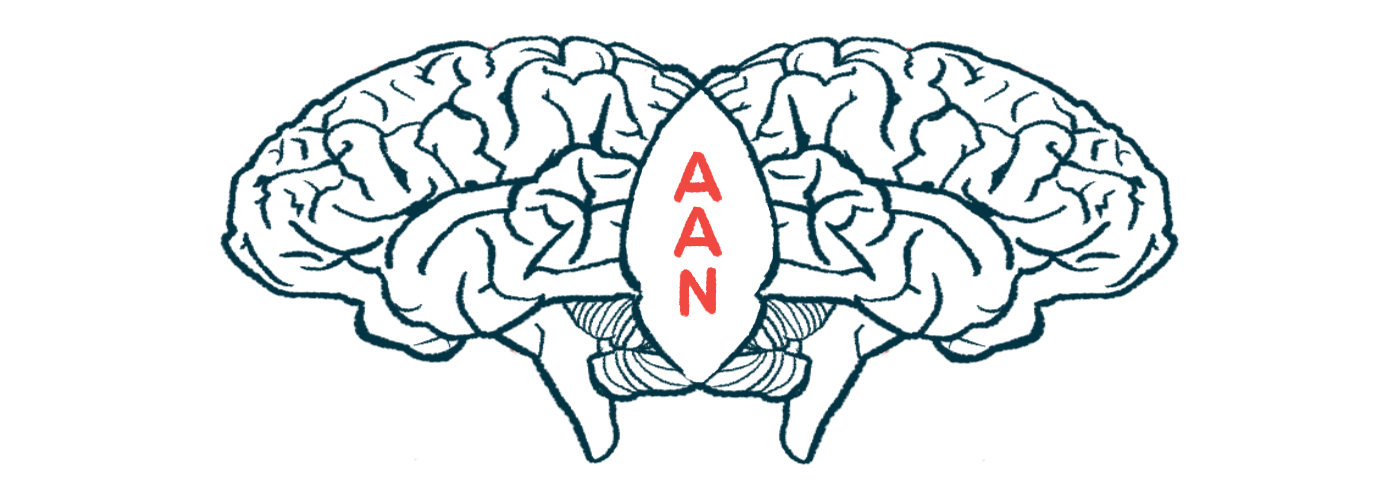AAN 2023: Aubagio reduced risk of developing MS symptoms in RIS trial
American Academy of Neurology presentation targets radiologically isolated syndrome

Treatment with Aubagio (teriflunomide) significantly reduces the risk that adults with radiologically isolated syndrome (RIS) will develop symptoms of multiple sclerosis (MS), new clinical trial data show.
This is the second trial showing that approved disease-modifying therapies can delay the development of MS in people who have evidence of MS-like damage in their brain and spinal cord, but have not yet experienced any symptoms.
“Our findings suggest that early intervention with teriflunomide may be beneficial to those diagnosed with radiologically isolated syndrome, the presymptomatic phase of MS,” Christine Lebrun Frenay, MD, trial investigator at the University Hospital of Nice, in France, said in a press release.
Lebrun Frenay presented the results at the American Academy of Neurology (AAN) 2023 Annual Meeting, being held April 22-27 in Boston, Massachusetts, and virtually in the talk “Teriflunomide (Aubagio) Extends The Time To Multiple Sclerosis In Radiologically Isolated Syndrome: The TERIS Study.” The work was supported by Sanofi, which markets name-brand Aubagio.
Multiple sclerosis is caused by the immune system launching an inflammatory attack in the brain and spinal cord. This leads to areas of damaged and scarred nerve tissue, called lesions, that can be seen on MRI scans. This damage to the nervous system ultimately gives rise to symptoms of MS.
RIS is a phenomenon that has been described only in the last decade or two as MRI technologies have become more widespread. In RIS, a patient is found to have MS-like lesions on an MRI scan — requested for reasons other than suspected MS — but no accompanying symptoms indicative of MS.
Many people with RIS eventually will develop MS, though this progression is difficult to predict.
“With more and more people having brain scans for various reasons, such as headache or head trauma, more of these cases are being discovered, and many of these people go on to develop MS,” Lebrun Frenay said. “The sooner a person can be treated for MS, the greater the chances of delaying damage to the myelin, which decreases the risk of permanent neurologic impairment and debilitating symptoms.”
Aubagio is an oral medication that works to slow the growth of certain immune cells that play a key role in the inflammatory attack that drives MS. It has been approved to treat relapsing types of MS in the U.S. for more than a decade. In addition to the name-brand version marketed by Sanofi, generic forms also are available.
TERIS clinical trial
The Phase 3 clinical trial TERIS (NCT03122652) included 89 people diagnosed with RIS at sites in France, Turkey, and Switzerland. Half of participants were assigned to take Aubagio (14 mg/day), while the other half got a placebo, for a total of about two years.
About two-third of patients were female, and the average age was about 38 years. The most common reasons for MRI indication were similar between the groups and included headache, dizziness, trauma, and ocular problems.
Over the course of the two-year study, 28 patients developed new MS symptoms: 20 on the placebo and eight on Aubagio. Statistical analyses showed the risk of progression to MS was significantly lowered, by approximately 63%, in patients treated with Aubagio.
Further statistical tests accounting for other factors like sex, age at RIS diagnosis, and the number of disease lesions seen on initial MRI scans estimated the risk was 72% lower with Aubagio than a placebo.
The number of patients with new or enlarging lesions, or new lesions with active inflammation, also was lower among patients given Aubagio than a placebo, though the difference did not reach statistical significance.
Patient-reported measures of fatigue, life quality, and cognition also tended to favor Aubagio, but were not significantly different compared to the placebo group.
The safety profile of Aubagio in this study was consistent with findings from prior trials of the drug. Common side effects included headache, diarrhea, nausea, hair loss, and liver damage.
‘Evidence’ of Aubagio benefits
The findings collectively provide “evidence for the benefit of [Aubagio] in RIS subjects,” Lebrun Frenay said.
The results make Aubagio the second-ever therapy to reduce the risk of progression from RIS to MS in a clinical trial, following positive results from the ARISE study (NCT02739542) of Tecfidera (dimethyl fumarate), which were reported last year.
“These findings support the benefit of early treatment intervention in” RIS, according to Lebrun Frenay.
“More research is needed in larger groups of people to confirm our findings,” Lebrun Frenay noted. “Additionally, it is important that medical professionals are cautious when using MRI expertise to diagnose this condition, selecting only patients at risk of developing MS and not increasing MRI misdiagnoses.”
Note: The Multiple Sclerosis News Today team is providing coverage of the American Academy of Neurology (AAN) 2023 Annual Meeting April 22-27. Go here to see the latest stories from the conference.







